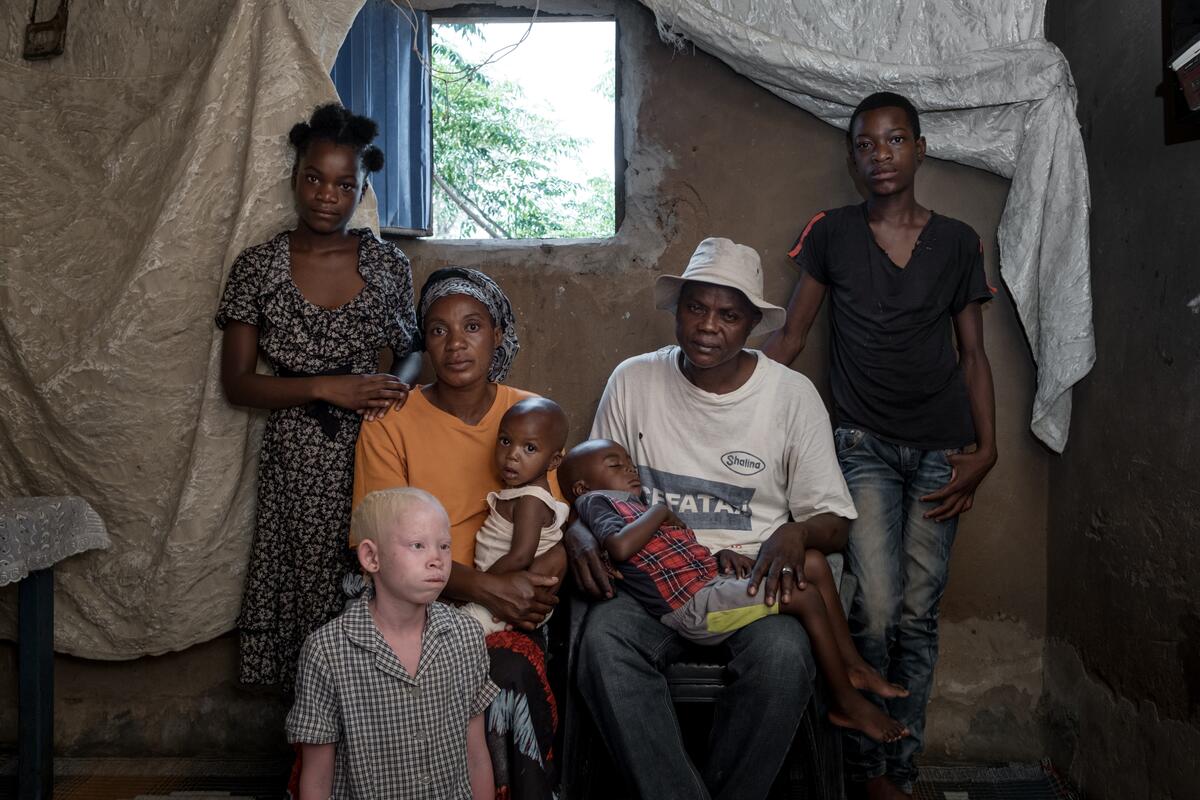UNHCR faces difficulty helping neediest Iraqis in Jordan
UNHCR faces difficulty helping neediest Iraqis in Jordan

AMMAN, Jordan, May 27 (UNHCR) - Amid rising food and energy prices, exacerbated by the withdrawal of state fuel subsidies, the UN refugee agency will find it increasingly difficult to help the growing numbers of Iraqi refugees in need of assistance in Jordan.
Vulnerable Jordanians and Iraqis have been particularly hard hit by the economic developments. And while the government has tried to cushion the blow with public sector wage increases and the establishment of a social safety net, these initiatives will not benefit Iraqis, most of whom are not entitled to earn a living in Jordan.
More than 150,000 Iraqis in Jordan have become completely dependent on international aid. But the rising fuel and food prices are also cutting into the funds of humanitarian aid organizations such as UNHCR, which has received less than half of the US$44 million it seeks from donors for operations in Jordan this year.
"The devastating effect is simple; on one hand the funds available buy dramatically less when compared to a few months ago. On the other hand, we are being faced with larger numbers of vulnerable people as their impoverishment is accelerated due to these rising costs," said Imran Riza, UNHCR's representative in Jordan.
UNHCR also provides food packages to some 20,000 Iraqis a month, but the refugee agency has had to cut the size of the package as a result of the rising prices. This has compromised the nutritional value of these packs, which used to contain 1,300 kilo calories per person per day but now contain 1,000 kilo calories per day. This compares to the daily international standard of 2,100 kilo calories. More price rises could mean further cuts to the calorie level.
Meanwhile, the financial assistance that UNHCR currently provides to 2,200 families - between 70 and 140 Jordanian dinars (US$100 - US$200) per month - will be insufficient to cover basic necessities, including shelter, because of the rising prices.
"With increased prices and more than half my allowance going on rent, how am I expected to survive?" asked Mona, a 52-year-old mother of three, who fled to Amman after her husband was killed two years ago. She recently started receiving assistance of 140 Jordanian dinars per month.
Tamara, a 49-year-old mother of five, was also feeling the pinch in the Jordanian capital and said she needed more assistance. "The school sent me five urgent notifications asking for immediate payment or my children will be dismissed from their school. Am I not considered to be in need? I have no money for food, rent and now I can't even support my childrens' education."
Meanwhile, more and more people are beginning to ask for assistance for the first time from UNHCR and other humanitarian organizations as their funds run out.
"There is a crucial need to re-sensitize the international community to the magnitude of the humanitarian problem in Jordan," said UNHCR's Riza, while warning that "if our budgetary requirements remain unmet, we will be forced to make cuts to our humanitarian operation."
The UN refugee agency also faces funding problems in neighbouring Syria, where hundreds of thousands of Iraqis have sought refuge. UNHCR provides education, food and health programmes in Syria, but these are also under threat as funds run out.
"Any further cut in UNHCR assistance is suicide for us. We are reaching our limits, and not being helped any longer means death. Assistance, even little, is 1,000 times better than nothing," said former gold merchant Amir, while queuing outside UNHCR's Damascus office.
Rebecca is also now dependent on UNHCR for aid. "My life will become a nightmare if UNHCR assistance comes to an end. We are seven people living in two tiny rooms," she said, while lining up to request further medical support for herself and a niece who was set on fire in Baghdad.
Naseer Shamaa is a famous Iraqi musician who works tirelessly for refugees and has visited Syria frequently to highlight their situation. "If UNHCR assistance comes to an end, the Iraqi refugees will be left starving. Then, nobody will benefit from anyone's feelings of guilt or remorse. The refugees are merely defending their right to live. UNHCR is giving them the opportunity to do so," he said earlier this month.
By Ziad Ayad in Amman, Jordan
and Sybella Wilkes in Damascus, Syria








